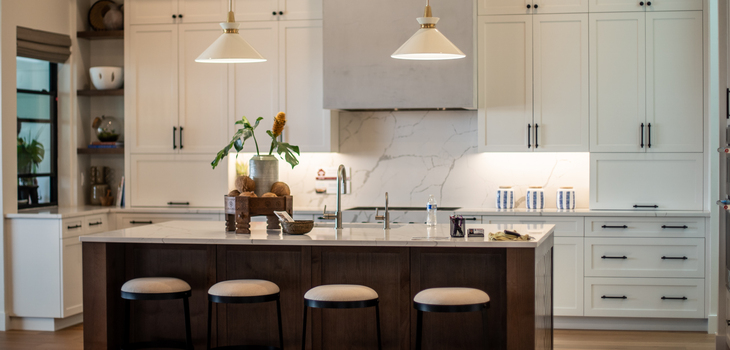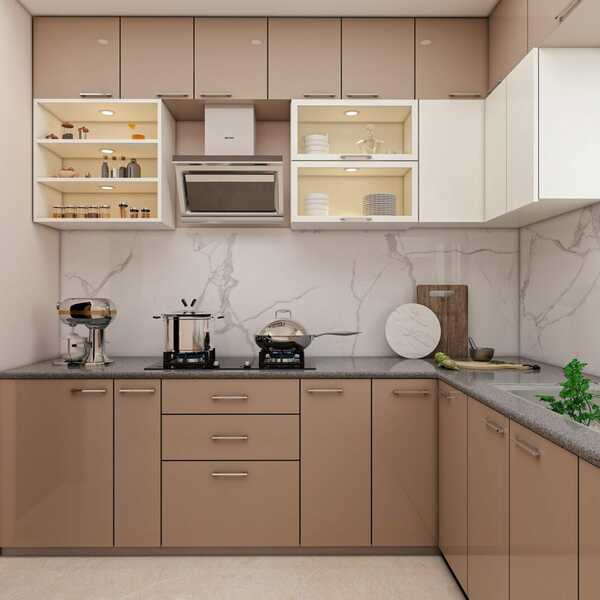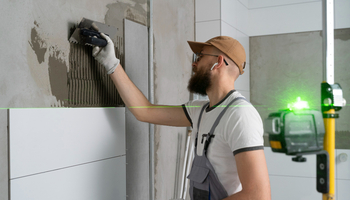The Evolution of Kitchen Assembly: Trends Shaping the Future of the Industry

As the heart of the home, the kitchen has always been a focal point for design and innovation. Over the years, the kitchen assembly process has witnessed a transformative evolution of kitchen assembly techniques, with emerging kitchen assembly trends reshaping the industry's future. From customizable modular solutions to intelligent appliances and sustainable materials, how we assemble and design kitchens constantly evolves.
One of the emerging kitchen assembly trends is the rise of modular kitchen systems, offering flexibility and customization options like never before. These systems allow homeowners to mix and match different components, creating a kitchen perfectly tailored to their needs and preferences. Smart kitchen appliances are also increasingly becoming a staple in modern kitchens, allowing for convenient and efficient cooking experiences. Technology is revolutionizing how we interact with our kitchens, from voice-controlled ovens to smart refrigerators that replenish groceries automatically.
Finally, sustainability is an important aspect of shaping the future of the industry. With eco-friendly materials and energy-efficient appliances gaining popularity, homeowners are increasingly mindful of their environmental impact.
In this article, we will explore these trends and more, delving into the exciting future of kitchen assembly and the innovations transforming this integral space in our homes.
Key Trends Reshaping The Kitchen Assembly
Customization and personalization in kitchen assembly
One of the key trends driving the future of kitchen assembly is the rise of modular kitchen systems that offer flexibility and customization options like never before. In the past, homeowners had limited options when it came to kitchen design, often having to settle for pre-made cabinets and fixed layouts. However, with modular kitchen systems, homeowners can mix and match different components to create a perfectly tailored kitchen for their needs and preferences.
Modular kitchen systems consist of individual units or modules that can be combined in various configurations to create a unique and personalized kitchen space. These modules can include cabinets, drawers, shelves, and countertops. With modular systems, homeowners can choose each module's size, shape, and style, allowing for endless possibilities in kitchen design.
Not only do modular kitchen systems offer customization options, but they also make the assembly process much more efficient and cost-effective. Since the modules are pre-fabricated, they can be easily installed and reconfigured as needed, saving time and money. This flexibility and ease of assembly have made modular kitchen systems increasingly popular among homeowners and designers.
Integration of Smart technology in kitchen assembly
Another significant trend shaping the future of kitchen assembly is the integration of intelligent technology. Technological advancements make our kitchens more intelligent and more connected than ever. Smart kitchen appliances are increasingly becoming a staple in modern kitchens, offering convenience and efficiency in our daily cooking experiences.
One example of intelligent technology in kitchen assembly is the rise of voice-controlled appliances. With voice assistants like Amazon Alexa or Google Assistant, homeowners can now control their kitchen appliances with simple voice commands.

From turning on the oven to adjusting the refrigerator's temperature, voice control adds convenience and ease to our cooking routines. In addition to voice control, intelligent appliances offer features like automated replenishment. Smart refrigerators, for instance, can keep track of the items stored inside and automatically create a grocery list when supplies run low. Some models even can order groceries online, making the kitchen restocking process seamless and hassle-free.
Moreover, innovative technology allows for better energy management in the kitchen. Energy-efficient appliances, such as smart ovens and induction cooktops, can help reduce energy consumption and lower utility bills. These appliances are designed to be more efficient in energy use, resulting in significant savings over time. With smart technology, homeowners can enjoy the convenience of a connected kitchen and contribute to a greener and more sustainable future.
Sustainability in kitchen assembly
Sustainability is an important aspect that is shaping the future of kitchen assembly. With growing environmental concerns, homeowners are increasingly mindful of their kitchen design and materials choices. Using eco-friendly materials and energy-efficient appliances has gained popularity, making sustainability a key consideration in kitchen assembly.
One way sustainability is incorporated into kitchen assembly is by using recycled and renewable materials. For example, cabinets and countertops made from reclaimed wood or recycled plastics reduce waste and add a unique and natural touch to the kitchen. Sustainable materials like bamboo and cork are also used for flooring and backsplashes, offering a more environmentally friendly alternative to traditional materials.
Energy-efficient appliances are another significant aspect of sustainable kitchen assembly. These appliances, from energy-star-rated refrigerators to low-flow faucets, are designed to minimize energy and water consumption. By choosing energy-efficient appliances, homeowners can reduce their carbon footprint and save on utility bills in the long run.
Furthermore, sustainable kitchen assembly also involves proper waste management. Recycling bins and composting systems can be integrated into the kitchen design, making it easier for homeowners to separate and dispose of waste responsibly. These small changes can significantly reduce waste and promote a more sustainable lifestyle.
Innovations Driving The Future of Kitchen Assembly
As the kitchen assembly process evolves, innovations play a crucial role in shaping the industry's future. From technological advancements to new materials and design concepts, these innovations transform how we think about and interact with our kitchens.
One of the key innovations driving the future of kitchen assembly is the use of augmented reality (AR) and virtual reality (VR) in the design process. With AR and VR technology, homeowners can now visualize their dream kitchens before they are built. By using specialized software and wearable devices, designers can create virtual representations of the kitchen space, allowing homeowners to explore different layouts, materials, and finishes in a realistic and immersive way. This helps make more informed design decisions and reduces the risk of costly mistakes during the assembly process.

This opens up a whole new world of possibilities in kitchen design, enabling homeowners to have truly unique and personalized spaces. 3D printing also offers the potential for on-demand production, reducing waste and increasing efficiency in the assembly process.
In addition to AR, VR, and 3D printing, advancements in material science are also driving innovation in kitchen assembly. New materials, such as nanomaterials and self-healing surfaces, are being developed to improve the durability and functionality of kitchen components. For example, self-healing countertops can repair minor scratches and damage independently, reducing the need for maintenance and replacement. On the other hand, nanomaterials offer enhanced properties like stain resistance and antimicrobial surfaces, making kitchens more hygienic and easier to clean.
Conclusion
The future of kitchen assembly is exciting, with unprecedented trends and innovations shaping the industry. From customizable modular solutions to innovative technology and sustainable materials, homeowners now have more options than ever when designing their dream kitchens. The rise of modular kitchen systems has revolutionized the way kitchens are assembled, offering flexibility and customization options that were once unimaginable.
Innovative technology has made our kitchens more connected and efficient, while sustainability has become a key consideration in kitchen design. With innovations like AR, VR, and 3D printing, designers and homeowners can explore new possibilities and create truly unique and personalized spaces. As we embrace the future of kitchen assembly services, we can look forward to functional, beautiful, sustainable, and technologically advanced kitchens.
Popular Articles

Understanding the Difference: Local vs. Long-Distance Moving Servic...

Expert Handyman Services for Commercial Property Renovations: Find ...

Safety First: Essential Safety Tips for a Smooth Local Move

DIY vs. Professional Packing: Which Option Suits Your Move Best?

Top Renovation Tips for Hotels: Why Handyman Services Are Key

Get Help Moving From a Driver with a Delivery Truck - Moovick Movin...

